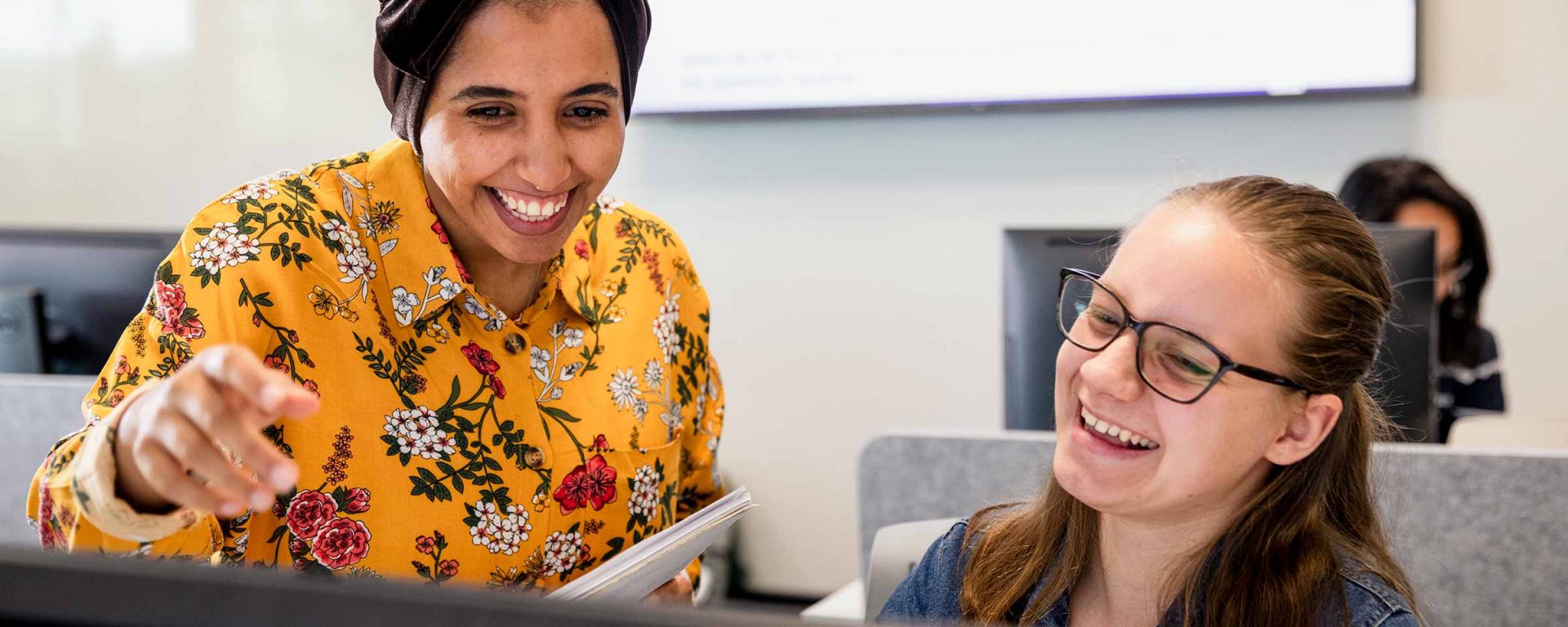Want a career helping others? Do you like working with young people? Then being a youth worker could be for you! It’s a rewarding way to make a real difference – and with heaps of jobs predicted in Australia, you’ll have a bright future.
So, whether you want to support young people through life’s challenges or are eager to mentor future generations, this is your guide to becoming a youth worker.

Here’s what we’re going to cover:
- What does a youth worker do?
- Where do youth workers work?
- How to become a youth worker
- What skills does a good youth worker have?
- What can I earn as a youth worker?
- Next steps
What does a youth worker do?

Youth workers support young people, usually aged between 11 and 25 years old, in their development toward adulthood.
They provide practical and emotional support for adolescents who may be experiencing issues such as homelessness, unemployment, mental health issues and substance abuse, as well as issues with family, education and sexual health. This typically includes offering young people basic counselling, guidance and intervention, and working with a wider referral network of other professional services to make sure clients get the right support.
So, what does the day-to-day of a youth worker look like? A few things you could be doing include:
- consulting with young people and assessing their needs
- providing crisis counselling to adolescents experiencing trauma
- arranging access to essentials like food, clothing and accommodation
- organising support services such as medical care
- assessing the progress of clients and adjusting support
- referring clients to other relevant support services
- providing advice and mentorship in one-on-one and group settings
- running workshops and events
- administrative tasks like writing reports and record keeping.
Above all, youth work is centered around making a positive impact on the lives of young people and guiding them toward a promising future. Pretty rewarding work, right?
Where do youth workers work?

As a youth worker, you could be employed in a few different industries and settings.
Most youth workers in Australia are employed in the health care and social assistance industry. This includes places like social welfare organisations, health clinics, hospitals, child care, out of home care services and adolescent mental health organisations.
Other common workplaces for youth workers are within the education and training industry, such as primary and secondary schools. Or within the public administration and safety space, which includes government departments that provide community services.
You could also work in a local youth centre or a specialised youth organisation. These centres provide free services for adolescents, including access to counselling, sporting activities, workshops and helpful activities, like developing job skills.
How to become a youth worker

In Australia, there are a few different pathways to becoming a youth worker.
Informal on-the-job training is often provided, so you may be able to start as a youth worker with no formal qualifications. But getting your foot in the door is usually improved with a qualification. These are typically a vocational certificate, diploma or a bachelor’s degree.
A common entry point to youth work is completing a vocational qualification in either youth work or community services. This will give you a foundational understanding of the industry and working with young people.
If you want to expand your employment horizons, you can go one step further with a bachelor’s degree, like Charles Sturt’s Bachelor of Social Work1 or Bachelor of Human Services. Each degree offers a slightly different pathway to the youth work space.
Bachelor of Social Work
- Learn about child-protection, cross-cultural and First Nations studies, ethics, human rights, law, mental health, psychology, social policy, sociology, and social work methods and theories.
- Gain practical work experience while you study, with 1,000 hours of work-integrated learning (previously called workplace learning).
- Attain a Diploma of Community Services after two years of study, so you’ll graduate with two qualifications.
- Earn course credit if you’ve got relevant diploma qualifications – saving time and money.
- Professionally accredited by the Australian Association of Social Workers (AASW).
- Complete either on campus or online in four years of full-time study.
Bachelor of Human Services (with specialisations)
- Choose from a range of majors, including Australian Indigenous Communities and Culture; Child, Youth and Family Practice; Disability; Gerontology and Healthy Ageing; Mental Health and Addiction; and Multicultural Welfare.
- Graduates of the TAFE Diploma of Community Services or similar can get credit for prior learning – so you could graduate in as little as 18 months of full-time study.
- Study online in just three years of full-time study.
Did you know: if you’re studying a Bachelor of Social Work with us and want to work for NSW Health after graduating, you could be eligible for a new Tertiary Health Study Subsidy. It can help cover the cost of university fees, technology, travel or other personal costs that may pop while you study. If successful, you could be one of 12,000 students supported with up to $12,000, when you work with NSW Health upon graduation!
Skills to be a good youth worker
A good youth worker will have a range of soft skills, coupled with specialised knowledge and technical skills.
When it comes to soft skills, you’ll need to be a good communicator. Communicating with empathy and understanding is especially important when working with young people experiencing distress.
Communication also means active listening, which goes beyond simply hearing the words another person speaks. It involves listening with all of your senses, paying attention to verbal and non-verbal cues, absorbing the information shared, and reflecting your understanding back.
Being patient and non-judgemental are key soft skills, as youth workers often need to handle emotionally charged situations. And the ability to be flexible will help you adapt to different situations as they arise, as well as the varied personalities and needs of each client.
You’ll also want to have strong organisational skills and time management, as you’ll be managing multiple clients while also juggling various admin tasks.
Specialised knowledge required for youth work can be gained through formal qualifications. It includes areas like psychology, mental health, therapy and counselling, sociology, child protection, law, social policy and personal service.
On the technical side of things, you’ll need a Working with Children Check and National Police Check, as you’ll be working closely with adolescents. Depending on your role, you might need an unrestricted driver’s license, to travel to clients and assist young people with transportation, as well as completing a valid First Aid Course.
Guess what? You could score an early offer to study the Bachelor of Social Work or the Bachelor of Human Services (with specialisations) based on your soft skills. Check out the Charles Sturt Advantage early offer program.
What does a youth worker earn?
The government puts the average salary of a youth worker in Australia at $1,050 per week. That works out to be around $55,000 per year. Your salary is likely to increase as you gain more experience. And with further study, you can advance your career toward management and leadership roles – increasing your earning potential even further!
Next steps
Feeling inspired and ready to start your career in youth work? Want to get a taste of what to expect? Discover what social work and human services is all about through this free online taster course.
And if you want some more info about how to become a youth worker, reach out to our team of uni advisers to chat through your options.
1CRICOS: 025159D



You must be logged in to post a comment.